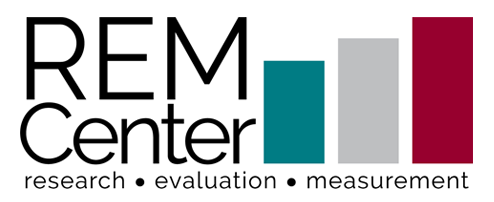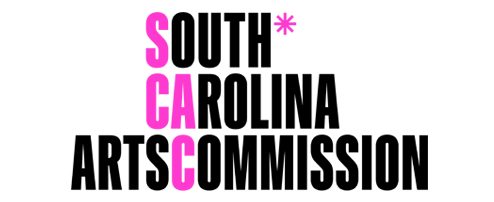About Us
The South Carolina Arts Assessment Program (SCAAP) is a statewide arts assessment program established as a collaboration among the South Carolina Department of Education (SCDE); the South Carolina Arts Commission (SCAC); the Research, Evaluation, and Measurement Center at the University of South Carolina (USC); and South Carolina arts educators. Our aim is to provide teachers with assessment tools that aid in measuring students’ arts proficiency and achievement, improving instructional practice, and evaluating school-based arts programs. All SCAAP assessments align with the 2017 South Carolina College- and Career-Ready Standards for Visual and Performing Arts Proficiency. The SCAAP assessments have been developed in close collaboration with arts teachers across the state. SCAAP pilots each assessment in SC classrooms. Using teacher feedback, we refine each assessment. The mission of SCAAP is to provide standards-based evidence that informs program development and improves instruction in the arts in order to increase student achievement and promote teacher growth.
History of SCAAP
SCAAP began in 2000 and was the nation’s first fully implemented, web-based state-level arts assessment. The multiple-choice and performance task assessments were aligned to the SC arts education standards and were administered as standardized tests for 4th grade arts students across South Carolina. Each spring, music teachers and visual arts teachers across South Carolina received interactive training and delivered an assessment comprised of 45 multiple-choice questions paired with two performance tasks. Arts teachers received a report card that outlined their students’ scores from previous years, their students’ scores from the current year, and their school’s score in comparison to other schools’ scores. When the South Carolina Department of Education released updated arts standards in 2017, the SCAAP team convened arts education stakeholders around the state to revise the mission statement and to determine the steps needed to continue improving arts education in South Carolina. SCAAP phased out the multiple-choice assessment in 2019 and began to focus on developing and providing access to authentic performance assessments for teachers to use in their classrooms.
Over the years, SCAAP has collected data regarding instructional time and planning time, teacher certification and preparation, arts program offerings, funding sources and budget, and teacher access to arts-specific professional learning. The SCAAP team also has conducted research studies to investigate the reliability and validity of individual SCAAP assessments as well as the monitoring and scoring procedures for the SCAAP performance tasks. SCAAP’s standardized assessments have been showcased in two publications, and SCAAP team members have presented arts assessment research at numerous state, national, and international conferences.
Meet the Team
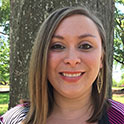
Dr. Ashlee A. Lewis,
Director
As SCAAP Director, Dr. Ashlee Lewis has varied and extensive experiences in the fields of program evaluation, applied research, and classroom assessment. She focuses her work through the lenses of utilization-focused and culturally responsive evaluation methods, various qualitative methodologies, and mixed methods research. Dr. Lewis has collaborated with arts teachers across South Carolina to develop authentic assessments, to create rubrics based on the South Carolina College- and Career-Readiness Standards, and to deliver professional development programs to enhance arts teachers’ abilities to assess student proficiency.
Dr. Lewis began working with SCAAP as a graduate research assistant in 2006 and became the program director in 2013. She earned a Ph.D. in Foundations of Education in 2013 and an M.Ed. in Educational Research in 2008 from the University of South Carolina, and she holds a bachelor’s degree in vocal music performance from Columbia College. Dr. Lewis enjoys singing in several local choral ensembles, travelling, and watching the British television series Doctor Who.
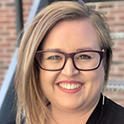
Dr. Kat Arrasmith,
Assistant Director
Dr. Kat Arrasmith is an early childhood and elementary general music development specialist and has worked with SCAAP since 2020. In her role as Assistant Director, she uses her deep knowledge of classroom teaching and assessment practice to facilitate the development of authentic assessments with South Carolina arts teachers. She works with collaborative groups of SC arts teachers to develop performance tasks, creates teacher guides and supplemental materials for each assessment, coordinates piloting processes, performs administrative duties, and conducts research studies in arts assessment.
Dr. Arrasmith earned a Ph.D. in Music Education from the University of South Carolina, where she held a Presidential Fellowship Award. As an early childhood music development researcher, she investigates young children's music vocalizations, creativity, improvisation, and music play using music theory and qualitative methodologies. When she is not singing with young children, Dr. Arrasmith enjoys knitting, sewing, cooking new recipes, and learning Hindi.
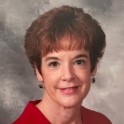
Kathy Clark,
Arts Instructional Research Associate
Kathy Clark is a veteran arts educator who worked in the Berkeley County School District for 44 years. She distinguished herself as an elementary music teacher at Marrington Elementary and Howe Hall Arts Infused Magnet School. Ms. Clark was chosen school and district Teacher of the Year and was a South Carolina Honor Roll Teacher. She also served as Berkeley County's Arts Coordinator for six years.
Ms. Clark began working with SCAAP in 2000 to help create the original standardized assessments. She has continued her relationship as an advisory board member, and she has contributed to SCAAP's redesign as a classroom assessment resource. After retiring in 2021, Ms. Clark joined the SCAAP team as an arts instructional research associate. She brings to the program her expertise in arts curriculum, instruction, assessment, and arts integration.


